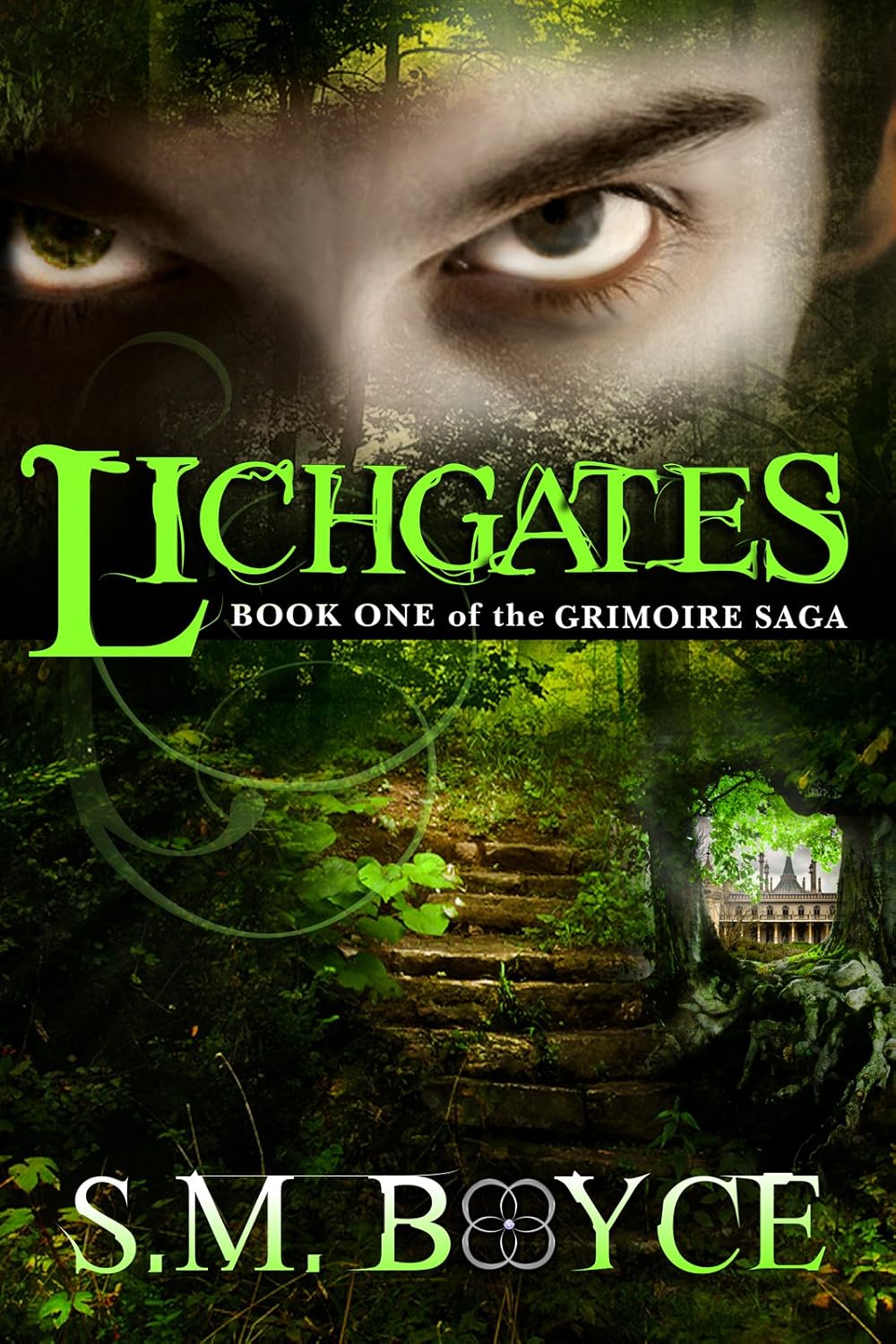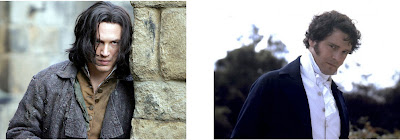Archive
Monthly Archives: August 2013
Monthly Archives: August 2013

Kara Magari is about to discover a beautiful world full of terrifying things: Ourea.
Kara, a college student still reeling from her mother’s recent death, has no idea the hidden world of Ourea even exists until a freak storm traps her in a sunken library. With nothing to do, she opens an ancient book of magic called the Grimoire and unwittingly becomes its master, which means Kara now wields the cursed book’s untamed power. Discovered by Ourea’s royalty, she becomes an unwilling pawn in a generations-old conflict – a war intensified by her arrival. In this world of chilling creatures and betrayal, Kara shouldn’t trust anyone… but she’s being hunted and can’t survive on her own. She drops her guard when Braeden, a native soldier with a dark secret, vows to keep her safe. And though she doesn’t know it, her growing attraction to him may just be her undoing.
For twelve years, Braeden Drakonin has lived a lie. The Grimoire is his one chance at redemption, and it lands in his lap when Kara Magari comes into his life. Though he begins to care for this human girl, there is something he wants more. He wants the Grimoire.
Get your FREE copy of Lichgates, the first novel in the Grimoire Saga, at any of the following retailers:
Amazon
Amazon UK
Kobo
iTunes
Smashwords
Find out more about S.M. Boyce on her blog and Twitter. You can also follow The Grimoire Saga on Facebook.
 |
| A Bronte Rogue or an Austenian Gentleman? |
“I had not seen Pride and Prejudice with Colin Firth as Darcy till I had read that sentence of yours, and then I got the book. And what did I find? An accurate daguerrotyped [photographed] portrait of a commonplace face; a carefully fenced, highly cultivated garden, with neat borders and delicate flowers; but no glance of a bright vivid physiognomy, no open country, no fresh air, no blue hill, no bonny beck [stream]. I should hardly like to live with her ladies and gentlemen, in their elegant but confined houses.”
And you thought only contemporary authors could be snarky! (More here.)
Considering Bronte had been told to write like Austen, she might have been justified for being a bit miffed. She decided to go a step further and slam her rival in classic nineteenth century style.
Was this more than writerly rivalry, though? Does it represent a real difference in what kind of writing — and what kind of hero — or indeed, what kind of society, is preferable? Bronte was a Romantic, who idealized the violent passions, whereas Austen captured the aspirations of the nascent middle class. Both were rebels, I think, against the existing order, but Austen’s heroines were determined to conquer the class divisions of the old system through sense and sensibility, whereas Bronte heros were more likely to burn it to the ground.
Eighteen-year-old Tanzy Hightower knows horses, has grown up with them on Wildwood Farm. She also knows not to venture beyond the trees that line the pasture. Things happen out there that can’t be explained. Or undone. Worse, no one but she and the horses can see what lurks in the shadows of the woods.
When a moonlit ride turns into a terrifying chase, Tanzy is left to question everything, from the freak accident that killed her father to the very blood in her veins. Broken and confused, she turns to Lucas, a scarred, beautiful stranger, and to Vanessa, a charming new friend who has everything Tanzy doesn’t.
But why do they seem to know more about her than she knows herself?
Moonlit is the first in a trilogy and is available on Amazon and Barnes and Noble.
The glow from the barn quickly dissolves into the inky night. Not a shred of it accompanies us past the mangled gate. But the dark offers little relief from the shadows that plague me in the light of day.
The full moon casts a blue glow over the rolling field, making the dark places that sway in the steady breeze look alive. I release the breath I’d been holding as we near the riding ring. Hopewell stands still as I lean from the saddle to let us through the gate.
Once we’re closed inside the safety of the lit arena, I take a quick scan of the tree line. The woods and their shadows are still.
“Paranoid,” I say, unwilling to admit to myself that it sounds too much like a dare as it drifts across the empty pasture.
I cluck to Hopewell and he strikes off in a floating trot. He stretches his neck and lets out a snort. We track a figure-eight pattern across the broad arena and then I move him up into a canter. His three-beat gait feels like flying. My eyes close in bliss as we sail down the long side of the ring. And then, a break in rhythm. The next two beats come too fast and his typically light step pounds at the ground. My muscles clench, locking my seat into the tack, and my eyes fly open.
“Easy, Hope. Easy.”
His pulse skyrockets, thumping through the saddle. I search the dark in a long sweep, anxious to catch sight of something I can define scurrying in the brush. But the field is empty.
“I don’t see anything.” Panic raises my voice to an unfamiliar octave and every muscle tenses with adrenaline.
Suddenly, he charges for the railing, twisting his head so far to the inside of the ring that I can see the rolling whites of his eyes.
Whatever is scaring him is in here with us.
I brace myself in the tack and chance a look behind us. Horror charges through my body as I lock eyes with a dark, ghastly creature slinking along behind us. It lowers its saber head and opens a pair of wide, capable jaws. My breath stills in my throat as it lunges from its crouch. Hopewell spins and bucks, kicking the beast square in the chest and throwing me onto his neck.
Don’t fall! I cling to his mane as I try to right myself, but I can’t get my feet back in the stirrups.
Hopewell leaps into a gallop and races toward the end of the ring. The distance between us and the fence evaporates in seconds. I push him forward, silently begging him to ignore the routine barrier. He powers off the ground and sails over the rail. I sit up as he lands, and steer him towards the barn.
Without warning, he leaps sideways tossing me airborne. I cry out as I land hard back in the saddle.
Another animal races toward us from the side. The first creature is closing in from behind.
Find more from Jadie Jones on her website, blog, Twitter, Facebook and Pinterest.
I picked up Copywriting for the Rest of Us free last night and read it this morning. It’s short but useful. Although it’s not targeted specifically at authors, I recommend it to authors who need to write blurbs or queries. In other words, all authors with a book to publish.
Coincidentally, I just read this advice again, in a different source. This book is on copyrighting (writing ad copy), and it’s free on Amazon right now (Aug 10): Copywriting For The Rest Of Us (Marketing For The Rest Of Us) – http://amzn.to/19UBYgN
One of the things he says is the “best” way to learn copy is to write out other people’s ads word for word. It both teaches and inspires.
This sounds crazy, but it’s true. I first learned this technique from a book on writing sentences: To actually copy, word for word, a sentence or a scene of a writer whom you admire. The logic: we remember admiring a clever sentence, we remember the way a beautiful passage made us feel, but we forget the mechanics of how it happened. So when we go to copy it, we end up doing a clumsy job.
If you actually copy the sentence/paragraph out word for word, you have intimate knowledge of how it was done, and you are actually “doing” it.
The next step is to copy the form of the sentence but change the content to your own — but keep verbs, adjectives and nouns in place.
I tried this technique with a few of the most beautiful, and to me, emotional scenes from my favorite books, and was amazed at how much the author HADN’T said. One of my problems is overwriting, I think, trying to spell out exactly what the reader should feel… this was not the right approach at all. This method helped me see that in a direct way.
Now, the weird thing is that even though I knew about this method for writing scenes and sentences, I still NEVER thought to apply it to writing blurbs, those book descriptions you put on the back of a paperback or in the book description on Amazon. And yet, I always struggle and sweat to write blurbs. DUH, this is something to practice by cooing other authors. I knew that. At one point. But I forgot. This book on copyright writing reminded me that this same technique is important for all the “secondary” kinds of writing we authors must do — queries, blurbs, reviews, even blog posts.
If you want help writing your blurb copy good blurbs of good books. If you’re self-publishing, this is really important. I’ve seen many good indie books with horrid blurbs that don’t sell the book at all. If you’re trying to snag an agent and a big publisher, this is also great for practicing query letters, since a query is basically formed around a blurb about your book.
I believe it’s still free, so hurry and grab your copy right now.
You might also want to visit Mike Shreeve’s website. He has lots more on Facebook ads, videos, increasing your rank on social media sites all that juicy promotions stuff that we writers hate but need to learn. 🙂